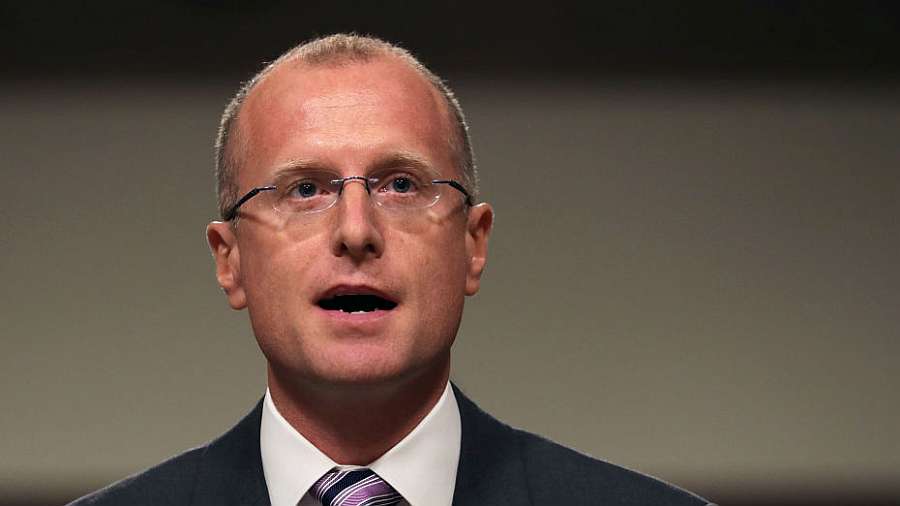FCC: TV Stations Can Team Up for Broadcast Internet
Carr says plans are to vote item clarifying that status at June meeting

The smarter way to stay on top of broadcasting and cable industry. Sign up below
You are now subscribed
Your newsletter sign-up was successful
The FCC is proposing to help promote broadcasting as a new competitive broadband pipe by making it clear that legacy broadcast TV ownership regulations do not apply to broadcast-delivered internet services like over-the-top video and data.
That is according to FCC commissioner Brendan Carr, who has been working on a draft declaratory ruling and notice of proposed rulemaking (NPRM) he says the FCC plans to vote on at its June public meeting. Carr was a logical choice to spearhead the item. At a 2019 NAB Show speech, he suggested that the ultra HD and interactivity of ATSC 3.0 (Nextgen TV) for broadcast services was only part of the story because the same ATSC 3.0 technology can deliver a 25 Mbps data stream.
Related: NAB Show: FCC‘s Carr Hails ’One-to-Many’ Broadband Pipe
Carr let that cat, more like a lion, out of the bag in remarks in advance of a National Association of Broadcasters/Consumer Technology Association online event on the ATSC 3.0 advanced TV transmission standard Monday (May 18).
According to those remarks, he pointed to the strengths of broadcasters' low-band spectrum, wide-area coverage and the one-to-many architecture that broadcasters have long touted as a big value added.
Carr painted a big vision of "broadcast internet" for IoT, telemedicine--a big deal in a COVID-19 world--and smart agriculture--with that one-to-many architecture reaching devices over wide areas efficiently. Then there is the offloading of 5G data off cellular networks, and a competitive option for movies and apps.
"And given that a Broadcast Internet signal can offer high-speed downloads, consumers could see reduced costs for Internet services, and its propagation characteristics make it well suited for underserved rural communities," he told his CTA/NAB audience.
The smarter way to stay on top of broadcasting and cable industry. Sign up below
While he said many are already exploring broadcast internet, the FCC could do more to help, which is where the June item comes in.
The declaratory ruling would say that any TV station could enter into lease agreements with any any other station, or stations, in a single market to offer internet services without triggering the FCC's attribution rules. According to people familiar with the item, it does not eliminate or propose to eliminate the requirement that broadcasters have to deliver a TV signal on their primary channel.
"This decision would help ensure that broadcasters and other innovators have the flexibility to generate the scale and geographic footprint—both locally and nationally—that may be necessary to support certain Broadcast Internet services without being subject to regulations unrelated to the provision of such services," Carr said. "It is critical that we provide certainty to broadcasters, investors, tech companies, and innovators that these agreements will not be subject to dated rules designed to regulate television stations—not autonomous vehicles or telemedicine applications."
Carr said he expects that the clarification will boost investment in broadcasting, investment that will help them invest in local news and public service, plus help them get a bigger piece of the ad pie being gobbled up by the internet.
In addition to the declaratory ruling, the item includes the NPRM seeking comment on whether other rules need to be changed or modified to deploy broadcast internet services, including asking "whether changes to our licensing structure would provide even better certainty of investment in Broadcast Internet offerings."
Contributing editor John Eggerton has been an editor and/or writer on media regulation, legislation and policy for over four decades, including covering the FCC, FTC, Congress, the major media trade associations, and the federal courts. In addition to Multichannel News and Broadcasting + Cable, his work has appeared in Radio World, TV Technology, TV Fax, This Week in Consumer Electronics, Variety and the Encyclopedia Britannica.

